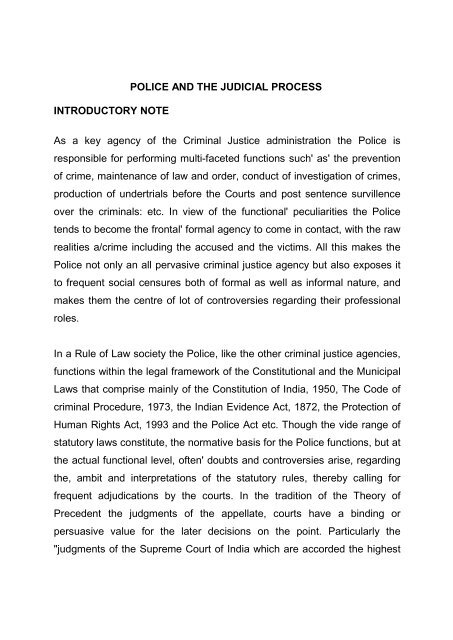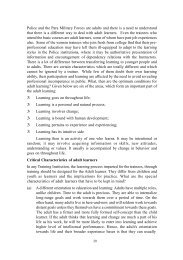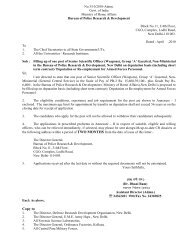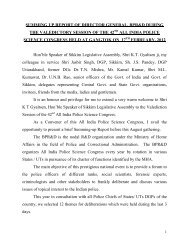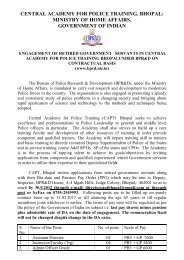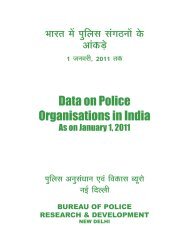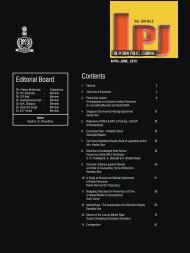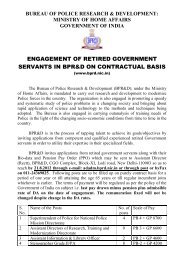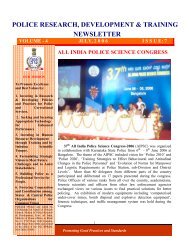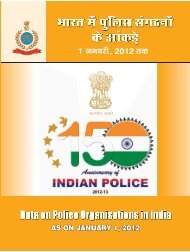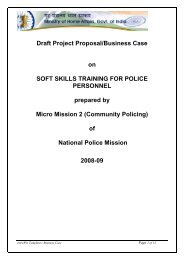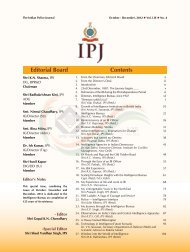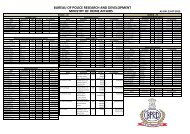SUPREME COURT & HIGHCOURT Rulings on POLICE
SUPREME COURT & HIGHCOURT Rulings on POLICE
SUPREME COURT & HIGHCOURT Rulings on POLICE
Create successful ePaper yourself
Turn your PDF publications into a flip-book with our unique Google optimized e-Paper software.
INTRODUCTORY NOTE<strong>POLICE</strong> AND THE JUDICIAL PROCESSAs a key agency of the Criminal Justice administrati<strong>on</strong> the Police isresp<strong>on</strong>sible for performing multi-faceted functi<strong>on</strong>s such' as' the preventi<strong>on</strong>of crime, maintenance of law and order, c<strong>on</strong>duct of investigati<strong>on</strong> of crimes,producti<strong>on</strong> of undertrials before the Courts and post sentence survillenceover the criminals: etc. In view of the functi<strong>on</strong>al' peculiarities the Policetends to become the fr<strong>on</strong>tal' formal agency to come in c<strong>on</strong>tact, with the rawrealities a/crime including the accused and the victims. All this makes thePolice not <strong>on</strong>ly an all pervasive criminal justice agency but also exposes itto frequent social censures both of formal as well as informal nature, andmakes them the centre of lot of c<strong>on</strong>troversies regarding their professi<strong>on</strong>alroles.In a Rule of Law society the Police, like the other criminal justice agencies,functi<strong>on</strong>s within the legal framework of the C<strong>on</strong>stituti<strong>on</strong>al and the MunicipalLaws that comprise mainly of the C<strong>on</strong>stituti<strong>on</strong> of India, 1950, The Code ofcriminal Procedure, 1973, the Indian Evidence Act, 1872, the Protecti<strong>on</strong> ofHuman Rights Act, 1993 and the Police Act etc. Though the vide range ofstatutory laws c<strong>on</strong>stitute, the normative basis for the Police functi<strong>on</strong>s, but atthe actual functi<strong>on</strong>al level, often' doubts and c<strong>on</strong>troversies arise, regardingthe, ambit and interpretati<strong>on</strong>s of the statutory rules, thereby calling forfrequent adjudicati<strong>on</strong>s by the courts. In the traditi<strong>on</strong> of the Theory ofPrecedent the judgments of the appellate, courts have a binding orpersuasive value for the later decisi<strong>on</strong>s <strong>on</strong> the point. Particularly the"judgments of the Supreme Court of India which are accorded the highest


